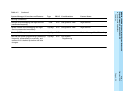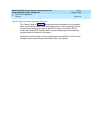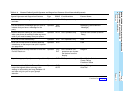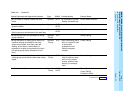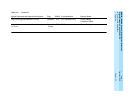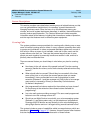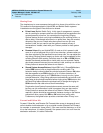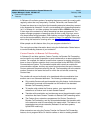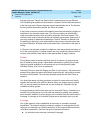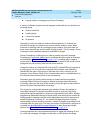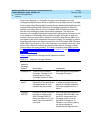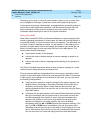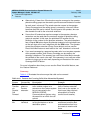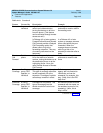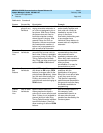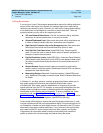
MERLIN LEGEND Communications System Release 6.0
System Manager’s Guide
555-660-118
Issue 1
February 1998
Features and Applications
Page 4-37Features
4
Activating Centrex Transfer via Remote Call Forwarding requires that Remote
Call Forwarding be enabled for the extension. However, the user dials
instead of
a dial-out code, and a Pause character may be required after the
. The Centrex
service provider determines whether the Pause is needed.
If the Pause is required, remote call forwarding cannot be activated at a single-line
telephone or by a remote access user. The user can employ an authorization
code to activate the feature from a multiline extension in the local system. This
method is also used to activate remote call forwarding at phantom extensions. A
user may activate or deactivate forwarding or Centrex Transfer via Remote Call
Forwarding by dialing his or her authorization code from an extension other than
the home extension. All digits must be activated within 15 seconds of the start of
dialing.
If a Pause is not required, a single-line telephone user may activate the feature at
his or her own extension. A remote access user may activate the feature without
using an authorization code. Barrier code requirements do apply, however.
Pickup 4
Pickup allows users to answer calls that come in for others in a group they are
part of (called a
pickup group
). It also allows individuals to quickly pick up calls
ringing at another extension or at lines that are not on their phones (called
Individual Pickup, for a line or an extension).
Generally, Pickup is used with Paging and Park. A call comes in. The person who
answers then pages the person who should receive the call, telling that co-worker
where the call is parked. The user who ultimately takes the call uses Pickup to
answer it.
You should be aware of pickup groups as an option for users who work closely
together and can hear one another’s phones (when you answer a group pickup
call, you cannot determine whose call you are picking up). Operators can be
members of pickup groups.
Coverage features (see the next topic) can be used with Pickup. If someone is a
member of a pickup group, his or her calls can always be picked up by another
group member, whether or not the person at the covered extension has turned on
coverage. If coverage is off, Individual Pickup cannot be used to pick up a call.
Coverage 4
One of the system’s unique capabilities is the variety of automatic coverage
possibilities. The features we group under the category of
coverage
allow a call
ringing at one extension (a
sender’s
extension) to also ring at another extension
(a
receiver’s
extension). Here are the types of senders we refer to:
■ An individual at an extension (Individual Coverage)



